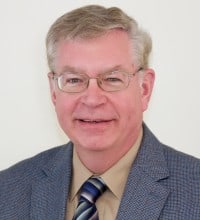By Rep. Jim Harrison
The first week of a new legislative biennium is full of tradition, pomp and circumstance, along with a heavy dose of getting organized. And, unlike the U.S. Congress this past week, the Vermont House and Senate completed their organization within hours of their respective official roll calls.
Once the House members elected a speaker and clerk and members were sworn in, one of the requirements under our constitution is to inform the governor that the House was organized and ready for business. The speaker then appoints a committee of six members to walk over to the governor’s ceremonial office in the State House and inform the Governor of that.
Last week I was a member of that six. We walked down the hall, shook hands, and shouted out, “Governor, we are organized.”
Then, having completed our 30 seconds of fame, went back to the House, and re-took our seats. Why six members? Some may quip, “How many legislators does it take to change a light bulb?”
The day continued with seating of the new representatives and the all-important committee assignments. With a third of the Legislature being new this year along with nine new committee chairs (out of 13) in the House and three in the Senate, there could be some steep learning curves in the coming weeks. I was reappointed to the House Appropriations Committee, which drafts the House version of the state budget and reviews other bills that appropriate state funds.
Thursday, Jan. 5, saw the swearing in of Phil Scott for his fourth term along with the other statewide officers, Lt. Governor (David Zuckerman), Secretary of State (Sarah Copeland-Hanzas), Treasurer (Michael Pieciak), Auditor (Doug Hoffer) and Attorney General (Charity Clark). The event also marked the return to the traditional in-person ceremony in the House Chamber since the pandemic.
Scott’s inaugural speech had many familiar themes. And while the popular governor was warmly welcomed by all in the Chamber, some of his points may not have been by all. Of note was when he said, “We must find ways to achieve our shared goals without adding taxes and fees because this only increases the cost of living.”
That statement may run against proposals favored by the Democratic majority to fund extensive new childcare support and a mandatory paid leave program for employees.
Scott put in a plug for his voluntary leave plan, which would allow employers to opt-in and pay the insurance premium. Legislative leaders believe a mandatory leave program will ensure that everyone that needs paid time off to care for a family member or other qualified reason, will have it. They also point out that a mandatory plan might offer better benefits and be less expensive per covered employee.
With virtually all sides recognizing the need for more housing in Vermont, the governor did not specifically call for more new investments at this point, but rather asked lawmakers to look at laws and barriers that inhibit housing developments. In his message to update regulations (Act 250, zoning, etc) he said, “…the failure to update a system that was meant to curtail development is contributing to the housing crisis we face today.”
Absent in his speech was any call for new firearm restrictions, which is expected to be a priority of new Senate Leader Phil Baruth, D-Chittenden Central District. Some of the proposals will include a requirement for a 72-hour waiting period to purchase firearms, locked storage when not in use and allowing towns to adopt their own regulations if they wish to be more strict than the state.
The governor will be back before legislators in two weeks to present the administration’s budget proposal for the 2023-24 fiscal year.
Meanwhile the Commissioner of Finance Adam Greshin briefed members of the House Appropriations Committee on Friday afternoon with the annual mid-year budget adjustment proposal. Of note this year is $100 million in one-time expenditures utilizing the state’s budget surplus. Of that amount, $30 million is for the state match towards a federal broadband buildout grant and $40 million for the state’s technology fund for IT projects, such as the Labor Department’s legacy computer system for unemployment claims.
In closing, I will do my best to provide timely updates on the proposals under consideration at the State House in the coming months. Thank you for your interest.
Jim Harrison is the state house representative for Chittenden, Killington, Mendon and Pittsfield. He can be reached at: [email protected] or harrisonforvermont.com.




